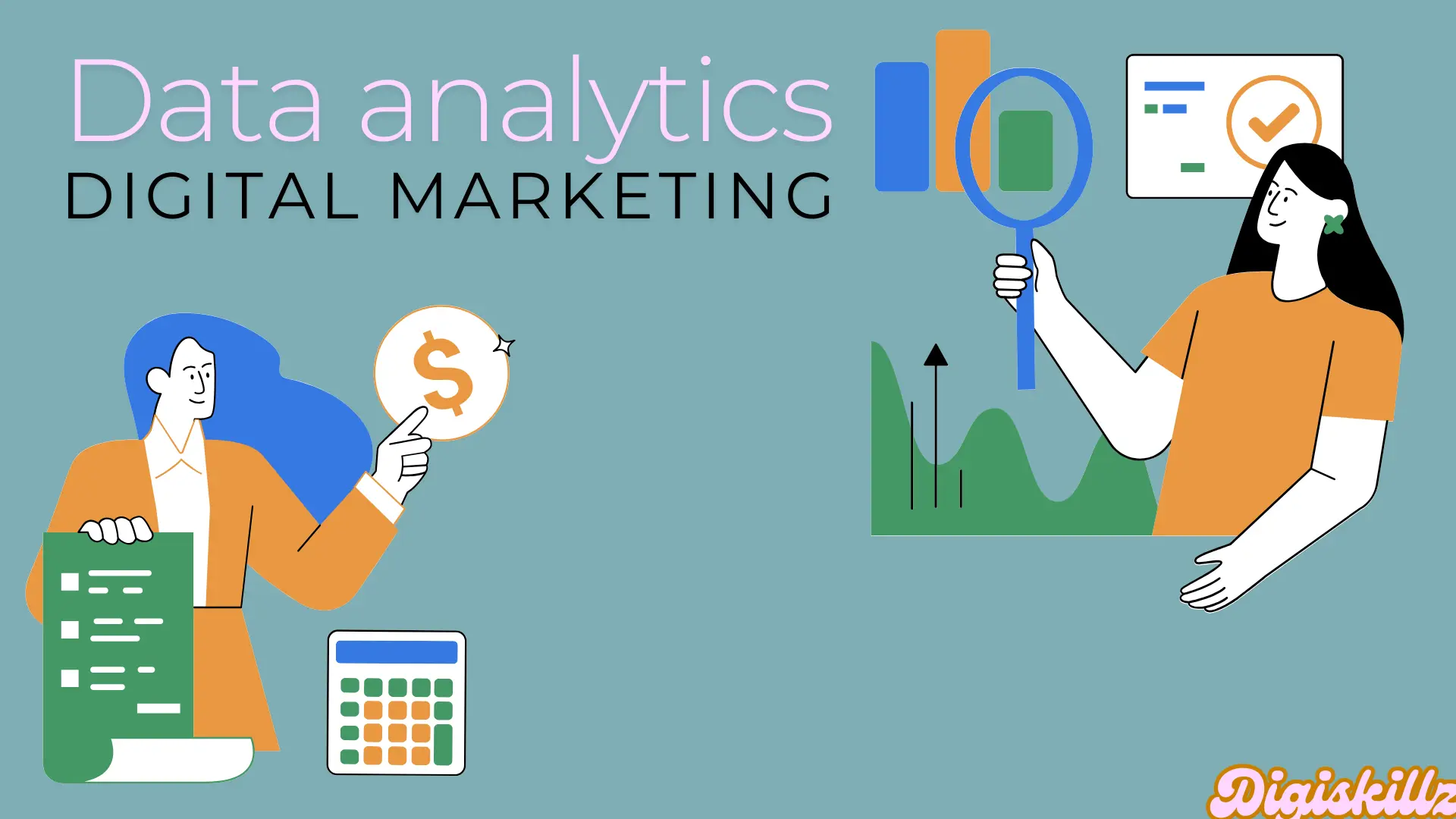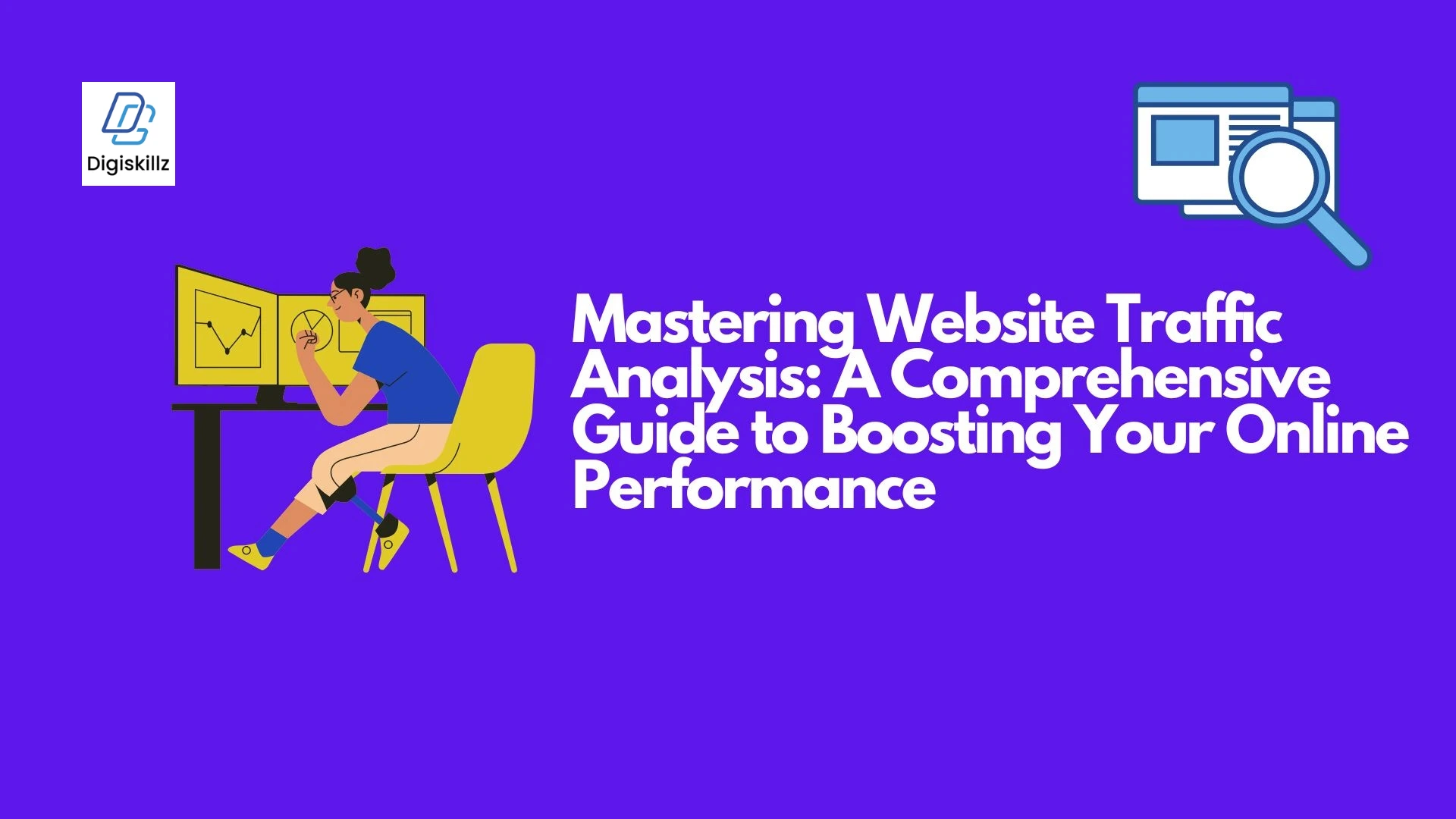In today’s fast-paced digital world, businesses are inundated with data. The ability to harness this data effectively has become a game-changer, especially in the realm of digital marketing. Data analytics in digital marketing is not just a buzzword; it is a fundamental approach that empowers businesses to make informed decisions, understand customer behavior, and optimize campaigns for maximum impact. In this blog, we will explore how data analytics transforms digital marketing and the key strategies businesses can adopt to stay ahead of the competition.
Table of Contents
The Role of Data Analytics in Digital Marketing
Digital marketing generates an immense amount of data from various channels, including social media platforms, email campaigns, websites, and online ads. Data analytics in digital marketing involves collecting, organizing, and analyzing this information to gain actionable insights. These insights enable marketers to:
Deciphering Consumer Insights
Data analytics in digital marketing unravels the intricate tapestry of consumer behavior, preferences, and purchasing patterns. By dissecting these insights, marketers can craft hyper-targeted strategies that resonate deeply with specific demographics, forging a bridge between brands and their audiences with unprecedented precision.
Personalization at Scale
Through sophisticated analytical frameworks, businesses can implement personalization on a granular level. Leveraging data points such as browsing history, purchasing trends, and social interactions, brands can tailor their messaging and offerings to individual consumer needs, creating an experience that feels both intuitive and bespoke.
Optimizing Campaign Performance
Data analytics in digital marketing empower marketers to continuously refine their campaigns by tracking key performance indicators (KPIs) such as click-through rates, conversion metrics, and engagement levels. This iterative process ensures resources are allocated effectively, maximizing return on investment (ROI).
Predictive Analytics for Strategic Foresight
By deploying predictive models, businesses can anticipate future trends and consumer demands. This foresight enables preemptive decision-making, ensuring campaigns remain relevant in the ever-shifting digital terrain. Predictive analytics thus transforms data from a retrospective tool into a proactive driver of strategy.
Enhancing Customer Retention
Data analytics in digital marketing is instrumental in identifying at-risk customers and deploying retention strategies. By analyzing churn patterns and customer feedback, marketers can implement measures to re-engage users, fostering loyalty and reducing attrition rates.

Refining Content Strategies
Understanding which content formats and topics resonate with audiences allows marketers to hone their content strategy. Data analytics in digital marketing provide insights into engagement metrics, enabling the creation of compelling and impactful narratives that captivate the target audience.
Real-Time Decision-Making
With real-time data tracking and analysis, businesses can respond swiftly to emerging trends, market dynamics, or unforeseen challenges. This agility not only enhances campaign performance but also positions brands as adaptive and customer-focused.
Integrating Cross-Channel Strategies
Data analytics in digital marketing facilitates the seamless integration of marketing efforts across multiple platforms. By evaluating the performance of each channel, businesses can orchestrate a harmonious strategy that amplifies their message and ensures consistency across touchpoints.
Measuring ROI with Precision
Accurately measuring the success of marketing endeavors is paramount. Data analytics in digital marketing equips businesses with tools to measure ROI meticulously, offering clear visibility into what drives success and what demands recalibration.
Future-Proofing Marketing Endeavors
As digital ecosystems evolve, the role of data analytics will only expand. Staying ahead requires not just leveraging current tools but also anticipating advancements in analytics technology to remain competitive in an increasingly data-driven world.
Key Techniques in Data Analytics for Digital Marketing
In the ever-evolving world of digital marketing, data analytics in digital marketing has emerged as a cornerstone for making informed decisions and crafting impactful strategies. By leveraging data, businesses can better understand their audiences, optimize campaigns, and improve ROI. This area explores the key techniques in data analytics that are reshaping the digital marketing landscape.
Segmentation and Targeting
Segmentation involves dividing a broad audience into smaller, more specific groups based on shared characteristics such as demographics, behavior, or preferences. This technique allows marketers to:
- Deliver personalized content that resonates with each segment
- Enhance the customer experience by addressing unique needs.
- Improve conversion rates by targeting the right audience with the right message.
Predictive Analytics
Predictive analytics uses historical data and machine learning models to forecast future trends and behaviors. In digital marketing, this technique can,
- Anticipate customer needs and preferences.
- Optimize marketing budgets by identifying high-performing channels.
- Predict churn and take preemptive measures to retain customers.
A/B Testing

AB /testing, or split testing, is a method of comparing two or more versions of a marketing asset (e.g., a webpage, ad, or email) to determine which performs better. Key benefits include:
- Identifying what resonates most with your audience.
- Reducing bounce rates and increasing conversions.
- Making data-driven design and content decisions.
Attribution Modeling
Attribution modeling helps marketers understand the impact of each touchpoint in a customer’s journey. By assigning credit to different channels and interactions, businesses can:
- Optimize marketing spend across channels.
- Gain insights into the customer decision-making process.
- Enhance cross-channel campaign effectiveness.
Sentiment Analysis
Sentiment analysis uses natural language processing (NLP) to determine the sentiment behind customer reviews, social media posts, and other textual data. This technique is invaluable for:
- Monitoring brand reputation and customer satisfaction.
- Identifying emerging trends and potential issues.
- Refining messaging to align with audience sentiment.
Real-Time Analytics
In today’s fast-paced digital environment, real-time data analytics in digital marketing enables marketers to monitor and respond to events as they occur. Benefits include:
- Seizing time-sensitive opportunities, such as trending topics.
- Adjusting campaigns based on live performance data.
- Enhancing customer engagement with timely interactions.
Customer Lifetime Value (CLV) Analysis
CLV analysis estimates the total revenue a business can expect from a customer throughout their relationship. This insight helps:
- Identify high-value customer segments.
- Develop strategies to increase customer retention and loyalty.
- Optimize marketing spend to focus on long-term profitability.
Benefits of Data Analytics in Digital Marketing
Data analytics in digital marketing has become an essential tool for marketers aiming to gain a competitive edge. By leveraging data analytics, businesses can make informed decisions, optimize strategies, and achieve measurable results. In this, we will explore the significant benefits of integrating data analytics into digital marketing efforts.
1. Enhanced Audience Understanding
Data analytics in digital marketing allows marketers to delve deeper into understanding their target audience. By analyzing metrics such as demographics, online behaviors, preferences, and purchasing patterns, businesses can create detailed customer personas. This insight helps in tailoring marketing campaigns to resonate with specific audience segments, increasing engagement and conversions.
2. Improved Personalization
Personalization is key to building strong relationships with customers. Data analytics in digital marketing enables marketers to deliver personalized experiences by analyzing user interactions across various platforms. For example, email campaigns can be customized based on past purchasing behavior or browsing history, making the content more relevant and appealing to the recipient.
3. Better Decision-Making
In the world of digital marketing, guessing is no longer an option. Data analytics in digital marketing provides actionable insights that guide decision-making processes. Marketers can identify what strategies are working and which need improvement. This data-driven approach minimizes risks and enhances the overall effectiveness of marketing campaigns.
4. Optimized Marketing Strategies
By analyzing performance metrics, data analytics in digital marketing helps businesses optimize their marketing strategies. Whether it’s improving website performance, enhancing social media campaigns, or fine-tuning pay-per-click ads, data-driven insights ensure resources are allocated efficiently to maximize ROI.

5. Real-Time Performance Monitoring
One of the significant advantages of data analytics in digital marketing is the ability to monitor campaign performance in real time. Tools like Google Analytics and social media analytics platforms allow marketers to track KPIs such as website traffic, conversion rates, and customer engagement. This real-time feedback empowers businesses to make quick adjustments to their strategies, ensuring optimal outcomes.
6. Predictive Analytics for Future Trends
Predictive analytics, a subset of data analytics in digital marketing, uses historical data to forecast future trends and behaviors. This capability allows marketers to anticipate customer needs and proactively design campaigns that meet those expectations. For instance, e-commerce platforms can predict peak shopping periods and plan inventory and promotions accordingly.
7. Enhanced ROI and Cost Efficiency
Data analytics in digital marketing helps businesses allocate their budgets more effectively by identifying high-performing channels and strategies. By focusing on tactics that deliver the best results, marketers can reduce wasted spending and achieve higher returns on investment.
8. Competitive Advantage
In a crowded digital market, staying ahead of competitors is crucial. Data analytics in digital marketing equips businesses with the insights needed to outperform competitors by identifying gaps in the market, understanding industry trends, and responding to customer needs more effectively.
9. Improved Customer Retention
Retaining existing customers is often more cost-effective than acquiring new ones. Data analytics in digital marketing helps businesses identify factors contributing to customer churn and develop strategies to address them. By understanding customer satisfaction and loyalty metrics, companies can foster long-term relationships with their clients.
Difficulties in Data Analytics and Solutions
While the benefits of data analytics are immense, marketers often face challenges such as:
-
-
Data Quality Issues
- Incomplete or inconsistent data.
- Presence of duplicate or incorrect entries.
- Lack of standardization in data formats.
-
Data Volume and Scalability
- Challenges in handling large datasets.
- Limitations of traditional tools in processing big data.
-
Integration of Data from Multiple Sources
- Separate data systems and formats.
- Challenges in combining structured and unstructured data.
-
Skill Gaps in Data Analytics Teams
- Lack of expertise in advanced analytics tools and techniques.
- Difficulty in interpreting data insights effectively.
-
Data Security and Privacy Concerns
- Risks of data breaches and unauthorized access.
- Ensuring compliance with regulations like GDPR, HIPAA, etc.
-
Interpretation and Communication of Insights
- Miscommunication of findings to non-technical stakeholders.
- Overreliance on automated dashboards without proper context.
-
High Costs and Resource Requirements
- Investment in tools, infrastructure, and skilled personnel.
- Balancing cost-effectiveness with analytical needs.
-
Practical Solutions to Overcome Challenges

-
Improving Data Quality
- Regular data audits and cleansing practices.
- Using automated tools for error detection and correction.
-
Leveraging Scalable Technologies
- Adoption of cloud-based analytics platforms.
- Implementing distributed computing solutions like Hadoop or Spark.
-
Streamlining Data Integration
- Employing ETL (Extract, Transform, Load) tools.
- Using APIs and middleware for seamless connectivity.
-
Investing in Skills Development
- Offering training programs and certifications for employees.
- Hiring specialized data scientists and analysts.
-
Enhancing Data Security Measures
- Encrypting sensitive data and using secure protocols.
- Establishing role-based access controls and monitoring systems.
-
Fostering Better Communication
- Creating visualization tools and simplified dashboards.
- Encouraging collaboration between technical and non-technical teams.
-
Optimizing Costs Through Strategic Investments
- Evaluating ROI of analytics tools and infrastructure.
- Exploring open-source tools and free-tier cloud services.
Future of Data Analytics in Digital Marketing

The integration of artificial intelligence (AI) and machine learning (ML) is set to revolutionize data analytics. AI-powered tools can analyze data at unprecedented speeds, uncovering deeper insights and automating decision-making processes. Additionally, as consumer behavior continues to evolve, data analytics will play a pivotal role in adapting strategies to meet changing demands.
The future of data analytics in digital marketing is poised to revolutionize the way businesses understand and engage with their audiences. With the rapid advancements in artificial intelligence (AI) and machine learning (ML), data analytics is becoming more sophisticated, enabling marketers to predict consumer behavior, personalize customer experiences, and optimize campaigns in real time. The integration of big data and predictive analytics allows businesses to gain deeper insights into customer preferences, purchase patterns, and emerging trends.
Moreover, tools like augmented analytics and automation are simplifying complex data processes, making data analytics in digital marketing accessible even to non-experts. As privacy regulations tighten, ethical data usage and transparency will play a crucial role, pushing marketers to adopt innovative methods for collecting and analyzing first-party data. In this dynamic landscape, data-driven strategies will continue to be the cornerstone of effective digital marketing, driving growth and fostering stronger customer relationships.
Conclusion
The foundation of any successful digital marketing strategy is data analytics. By leveraging the power of data analytics in digital marketing, businesses can craft targeted campaigns, enhance customer experiences, and achieve measurable results. As technology advances, the potential for data analytics in digital marketing will only grow, making it an indispensable tool for marketers in the digital age. For businesses willing to embrace this approach, the future is filled with opportunities to thrive in an increasingly competitive landscape.
Author : Ilyas
Learner of DigiSkillz, Digital Marketing Institute in Kottakkal










Leave A Comment